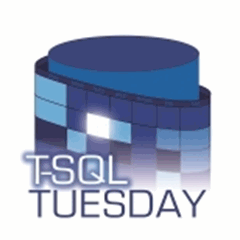 DBA. I’ll be honest, there are times I *hate* that title. People toss it around without really understanding what it means. Heck, how many of us specialize in backups, monitoring, and high availability solutions only to get a call from a recruiter who has an “immediate need” for an expert in SSRS and cube design. Unfortunately, this is a direct result of non-database folks not really understanding what we do. They simply see “database” on our resume and figure that if a database is involved, we know how to handle it.
DBA. I’ll be honest, there are times I *hate* that title. People toss it around without really understanding what it means. Heck, how many of us specialize in backups, monitoring, and high availability solutions only to get a call from a recruiter who has an “immediate need” for an expert in SSRS and cube design. Unfortunately, this is a direct result of non-database folks not really understanding what we do. They simply see “database” on our resume and figure that if a database is involved, we know how to handle it.
We’re often considered a Jack-of-all-trades, the IT handyman. This has evolved from the roles we have to play in our careers and how so many of “fell” into a database career. The rule of thumb is that the smaller the shop, the greater our breadth of knowledge needs to be. While I’ve been a SQL Server administrator for over ten years now, my job responsibilities have required me to learn something about networking, Windows server administration, .Net development, report writing, and Oracle administration (amongst many, many other topics). Because so many things touch a database, we’re expected to understand all of these different pieces as well as the database itself.
The problem with all this is that it’s more than any one person can really know. With SQL Server becoming more and more complex (a good thing, by the way), it’s hard enough for us to keep up with that platform alone. Since it’s rarely an option to tell our boss “No, I can’t do that”, there’s a couple things that I’ve found help me stay ahead of the game:
- Building your personal network. This is more than just the SQL Server community (fantastic as it is). Sure, attending user group meetings has helped me find experts in areas of SQL Server I’m not as knowledgeable in. But you’ll need more than that. I have Oracle DBA friends, hardware geek friends, sysadmin friends…..you get the idea. By building out this network, I always have someone I can go to if I’m out of my depth.
- Stay educated. Sure, we spend a lot of time learning about SQL Server, but remember why we get into this business in the first place. Technology is cool, so keep learning about it. Pay attention to trends and tech so that when your boss comes to you about something, you won’t be caught by surprise. And if you *are* surprised, don’t sweat it, but make some time that day to read up on whatever they were talking about.
- Write it down. When you do something, document it! So many people bemoan documentation, but the cold hard truth is you’re going to forget something when your focus gets completely shifted the next day. Being a small shop DBA means you’re going to get bounced around on a lot of different things, so you need to record what you do so that you don’t have to relearn it later.
Being a small shop DBA can be a tough gig, but it’s where most of us cut our teeth. Hindsight being 20/20, there’s a lot I’d do differently. Fortunately, Argenis Fernandiz (b|t) has given us this great T-SQL Tuesday topic for us to share with our SQL family and help others learn from our experiences.
The biggest lesson I would take out of all of this is that, while our job requires us to generalize most of the time, we can really only advance our careers when we specialize. If you’re simply treading water at your current job, pick some part of the SQL Server platform that interests you and focus on it. Once you start becoming an expert at something, opportunities will open up for you along with more interesting work and learning. That will start you along the path of moving beyond being a jack of all trades and becoming an ace in the database deck.

 I’m tweeting!
I’m tweeting!